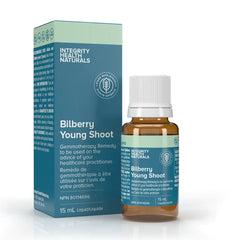

Bilberry Young Shoot - Vaccinium myrtillus
- 40.00$
0.00$- 40.00$
- Unit price
- per
Description
x- Recommended for: Antioxidant, Night Vision, Cataracts, Varicose Veins, Chronic Fatigue, Vascular Protector, Colibacillosis, Venous Insufficiency, Degenerative Disorders, Retinal Disorders, Visual Acuity, Dermatitis, Urinary Antiseptic, Gastrointestinal Disorders, Urinary Tract Infections, Hemorrhoids
Bilberry, which thrives in acidic soils, produces purplish-black berries. These berries aid night vision in nocturnal birds. Historically, the astringent qualities of bilberry helped intestinal problems, including vomiting and colitis, and reduced fermentation. Its endocrine-balancing effects, rich in anthocyanosides and antioxidants, protect microvascular and ocular circulation. Bilberry also has antibiotic and deworming properties.
On a spiritual and mental-emotional level, the young blueberry shoot (similar to the blackcurrant bud) protects against negative thought patterns.
Phytoembryonic plant medicine, similar to Western botanical medicine, relies on extracting a variety of phytochemicals, nutrients, and energy elements from plants to exert therapeutic effects. The plant bud, composed primarily of meristem cells, is the most concentrated and vital part of the plant, as it houses all the information related to the plant's development. Meristem cells are undifferentiated embryological tissues capable of specializing according to living conditions. Thus, meristem cells are the factory, the engine, and the blueprints of an immature plant, giving functional instructions to the embryonic tissue and directing its growth to thrive in a specific environment.
Produits recommandés
Produits récemment consultés
- Choosing a selection results in a full page refresh.


